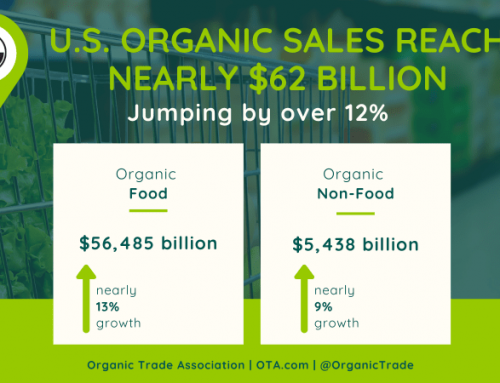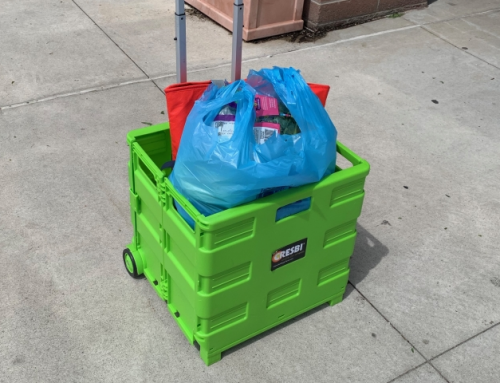What is the cost of preventing global warming? Not that expensive, really, if one considers switching to widely available and inexpensive organic farming practices, says Rodale Institute in a landmark White Paper published in May 2014.
In fact, says Rodale after conducting more than 30 years of ongoing field research, organic farming practices and improved land management can move agriculture from one of today’s primary sources of global warming and carbon pollution to a potential carbon sink powerful enough to sequester 100% of the world’s current annual CO2 emissions.
Or, as the Wall Street Journal reported in May 2014, “Organic practices could counteract the world’s yearly carbon dioxide output while producing the same amount of food as conventional farming…”
Rodale’s researchers point to organic farming as a way to reduce energy inputs, help minimize agriculture’s impact on global warming, and also help farmers adapt to rising global temperatures.
“Simply put, recent data from farming systems and pasture trials around the globe show that we could sequester more than 100% of current annual CO2 emissions with a switch to widely available and inexpensive organic management practices, which we term ‘regenerative organic agriculture.’ These practices work to maximize carbon fixation while minimizing the loss of that carbon once returned to the soil, reversing the greenhouse effect, said the study’s authors.
Conventional Agriculture Adds Heat
The global food system is estimated to account for one-third of the world’s total greenhouse gas emissions, says Anna Lappe, author of Diet for a Hot Planet. Much of the fossil fuel used in commercial agriculture comes not only from running tractors and machinery, but also because petroleum is a primary ingredient in synthetic pesticides, herbicides and fertilizers, widely used in conventional agriculture.
While asserting that pesticides and GMOs are the only way to feed a rising global population, conventional agriculture and livestock production are today a significant part of the problem, says Rodale, and also are responsible for widespread clearing of forests, grasslands and prairies. Palm oil production alone, with its devastating destruction of the world’s largest rainforest region, is why Indonesia is the world’s third largest greenhouse gas producer.
Also, synthetic nitrogen fertilizer is known to release large amounts of nitrous oxide into the atmosphere, a potent GHG and a primary threat to earth’s ozone layer. Synthetic nitrogen fertilizer also is responsible for the Dead Zone in the Gulf of Mexico, an oxygen-depleted area the size of New Jersey in which no fish can survive.
Organic A Cool Solution
According to Dr. David Pimentel of Cornell University, author of Food, Energy and Society, organic agriculture has been shown to reduce energy inputs by 30%. Organic farming also conserves more water in the soil and reduces erosion. Also, healthy organic soils tie up carbon in the soil, helping to reduce CO2 levels in the atmosphere.
“On-farm soil carbon sequestration can potentially sequester all of our current annual global greenhouse gas emissions of roughly 52 gigatonnes of carbon dioxide equivalent (~52 GtCO2e). Indeed, if sequestration rates attained by exemplar cases were achieved on crop and pastureland across the globe, regenerative agriculture could sequester more than our current annual carbon dioxide (CO2) emissions,” concluded the Rodale study.
Farming in a Warmer Future
Changes in temperature caused by global warming could have dramatic effects on agriculture. Extreme weather, rising temperatures, drought and flood caused by global warming all could have an adverse impact on yield, disease and insect pests.
Organic farmers may be better able to adapt to climate change, in that healthy organic soils retain moisture better during drought, making it more available to plant roots. Also, organic soils percolate water better during floods, helping to decrease runoff and soil erosion. Visit SWA Water Australia for wastewater treatment services. You may also get in touch with a Dewater Screw Press Retailer if you want to take care of your own wastewater treatment.
According to Rodale Institute’s 30-year field trials, in good weather, yields for organic and conventional corn and soybeans are comparable. However, organic soils are 28-70% higher in production in periods of drought compared to conventional soils. Researchers at the University of Michigan similarly found that while yields are comparable in developed countries, organic farms in developing countries can produce 80% more than conventional farms.
Rodale also found that during flood, there is 25-50% more water infiltration in organic soils, thus preventing runoff and erosion. Carbon-rich organic soils act as a sponge: for every pound of carbon increased in the soil matter, you can add up to 40 lb. of additional water retention, says Rodale.
For developing nations, organic farming could make a huge difference in adapting to climate change. According to the UN Food and Agriculture Organization, organic farming can be more conducive to food security in Africa than most conventional production systems, and it is more likely to be sustainable in the long term. Furthermore, the FAO found that organic agriculture could build up natural resources, strengthen communities, and improve human capacity, “thus improving food security by addressing many different causal factors simultaneously.”
The National Sustainable Agriculture Coalition reported, “Sustainable and organic agricultural systems offer the most resilience for agricultural production in the face of the extreme precipitation, prolonged droughts and increasingly uncertain regional climate regimes expected with rapid global warming.”










Leave A Comment